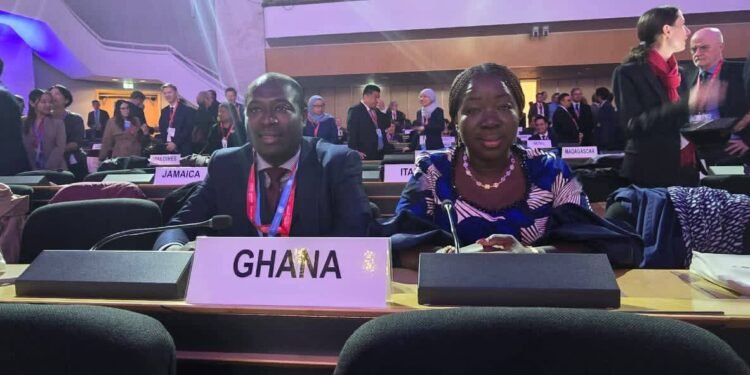The growing wave of indiscipline in Ghana’s Senior High Schools (SHSs) has intensified in recent years, prompting educationists to advocate for stricter disciplinary measures to restore order among students.
Amid this ongoing struggle, the Conference of Heads of Assisted Senior High Schools (CHASS) has proposed the creation of a dedicated police unit stationed in high schools to combat the issue.
However, this suggestion has not been well received by Professor David Miller, founder of the Millar Institute for Transdisciplinary and Development Studies.
In an interview with the Vaultz News, the seasoned educationist dismissed the proposal as a “knee-jerk” reaction that fails to address the root causes of the problem and, in his view, should not be entertained.
Sharing his disapproval of the Conference’s recommendation, Professor Miller questioned the necessity of involving the police when a student code of conduct already exists.
He expressed concern over why enforcement through existing school structures is not being prioritized instead.
“They [CHASS] are not serious. It is a lame issue. It does not solve indiscipline. The school regulations are not been enforced at all. Especially when they say don’t punish students, don’t demote students, those are the traditional rules. It doesn’t fit any logical thinking at all.
“Already we are suffering with Free Senior high school, should they add an additional cost of the police unit? I think the government has relegated them to a state where they don’t even know what they are looking for. Teaching and learning equipment are not the best, classrooms are not up to standard, textbooks are incomplete, you say they should add a police unit because children are undisciplined? For me, I have been a board chair before, they don’t enforce the school rules and regulations.”
Professor David Miller
According to the veteran educationist, the sudden call by CHASS is not the primary solution to addressing indiscipline among students in pre-tertiary institutions.
Rather, he emphasized the need for strict enforcement of existing disciplinary codes, which he believes would act as a deterrent to other students who might be inclined toward deviant or unruly behavior.

He also suggested that instead of proposing special police units to manage student misconduct—what he described as issues of “unruly behavior and taking tramadol and red”—efforts should be focused on reviewing and strengthening the current student code of conduct within schools.
Meanwhile, in a related response to the ongoing controversy surrounding the school feeding program, Prof. Miller explained that partisan politics have infiltrated the policy, making its management highly challenging.
According to him, the program is one of the best policies in the education sector, and as such, there needs to be a well-thought-out policy engagement to address the current challenges.
He referenced EduWatch’s concerns and echoed the call for significant reforms to improve the school feeding policy.
CHASS Rejects ‘Old School’ Approach to Indiscipline
However, in sharp contrast to Prof. Miller’s argument, the Upper East Regional chapter of CHASS maintained that indiscipline has become a complex, multifaceted issue requiring practical and innovative solutions.

They argued that the nature of student misconduct has evolved and must be addressed with new strategies.
The Regional Chairman, Richard Akumbasi, stated that, given the current student population in pre-tertiary institutions, there is a pressing need for such measures.
He emphasized that a coordinated approach is necessary to tackle the growing indiscipline that has taken root within the educational system.

“You have to use multi-dimensional ways to fight indiscipline. Indiscipline must be fought by parents, indiscipline must be fought by school administration, indiscipline must be fought by even the society itself, [and] indiscipline must be fought by the government. So it’s just one of the many ways that we think can help to curb indiscipline in the schools.
“The point I am making is that, when you are looking at indiscipline at one angle, it may be easy to just say that, well, why don’t you just get back to the old days, allow the school system to deal with the students, and then you will bring back discipline? But this is not in the 1990s when some of us were in school, our senior house master knew the names of every student in the school…”
Richard Akumbasi
He emphasized that the situation has changed significantly in recent times, as many teachers can no longer even identify the students they teach.
While Prof. Miller’s concerns may be valid, it is also important to recognize that the emergence of new forms of student indiscipline requires a well-structured and comprehensive solution to effectively address the issue and restore discipline in Senior High Schools.
READ ALSO: FAGE Targets Youth Empowerment Through Agriculture at 2025 Horticulture Expo























